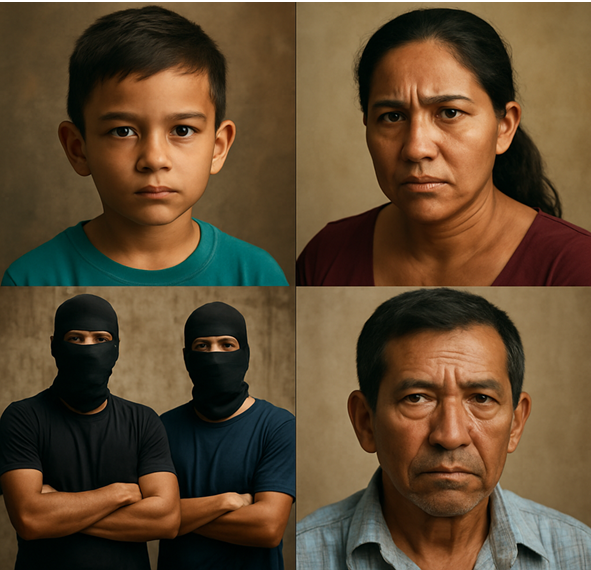
Families and Asylum: Attorney General Narrows Definition of “Particular Social Group” in Matter of R-E-R-M- & J-D-R-M- (2025)
Authority: Attorney General of the United States
Key takeaway: Families are not automatically considered a “particular social group” for asylum purposes. Instead, a family-based claim only works if the family unit is specifically defined and socially recognized in the applicant’s country.
The Background
The case involved a mother and her minor son from El Salvador. She applied for asylum in the U.S., arguing that she faced persecution because of:
- Her family ties (her kinship connections).
- Her opposition to gangs and refusal to submit to their authority.
She testified that Salvadoran gang members had extorted her and threatened to kill her brother. Even after fleeing to Guatemala, the threats continued. She entered the U.S. in 2015 and sought protection.
The Immigration Judge denied asylum, finding:
- She did not show she belonged to the group of “people who oppose gangs.”
- Her family did not qualify as a legally valid “particular social group.”
The Board of Immigration Appeals agreed. The case went up to federal court, and eventually the Attorney General stepped in to clarify the law.
The Legal Issue
The central question was:
Can family or kinship ties automatically count as a “particular social group” for asylum purposes?
Under asylum law, to qualify as a particular social group, a category must:
- Share an immutable trait (something that cannot or should not be changed, like family ties).
- Be defined with particularity (clear and specific boundaries).
- Be socially distinct (recognized as a distinct group within the home society, not just in the eyes of the persecutor).
The dispute was whether every nuclear family should automatically qualify—or whether each case requires a closer examination.
The Attorney General’s Decision
The Attorney General reinstated Matter of L-E-A- II (2019) and overruled L-E-A- III (2021).
- No automatic rule for families. Not every family is a valid “social group.” Instead, families qualify only if they meet the requirements of particularity and social distinction in their country.
- Case-by-case approach. Judges must look carefully at the facts of each case to see if the society at large views that family as a distinct group.
- Rejected reliance on future rulemaking. The 2021 decision (L-E-A- III) had set aside the stricter rule, waiting for new regulations from the Biden Administration. But those regulations were never issued. The Attorney General said leaving the issue unresolved created confusion and that case-by-case decisions are the proper way to handle it.
In short: a family can be a social group, but not always. It must be clearly defined and socially recognized—not just any group of relatives.
Why It Matters
- For asylum seekers: People fleeing harm because of family ties (e.g., gangs targeting them because of a relative) will face a higher bar. They cannot simply say “I’m part of a family”; they must prove their family is socially distinct in their society.
- For immigration courts: Judges and the BIA must now apply the narrower standard from L-E-A- II. They cannot automatically treat nuclear families as qualifying groups.
- For the bigger picture: This decision continues a trend of restricting asylum eligibility for those harmed by gangs or private actors in Central America. It aligns with the Attorney General’s other 2025 rulings (like Matter of S-S-F-M- on domestic violence) that tighten standards for private-persecution claims.
Bottom Line
In Matter of R-E-R-M- & J-D-R-M- (2025), the Attorney General ruled that family ties do not automatically make someone part of a “particular social group.” Instead, families must be shown to have clear boundaries and be socially distinct in the home country.
This narrows asylum eligibility and emphasizes case-by-case analysis, making it harder for many Central American asylum seekers to win protection based solely on family-based persecution.
Let’s Get Started
Your legal challenges deserve personalized attention and innovative solutions. Contact Oware Justice Advocates PC today for a consultation and take the first step toward resolution and peace of mind.
355 South Teller Street, Suite 204,
Lakewood, CO 80226
(Visits to the office are strictly by appointment only)
303-514-6589

